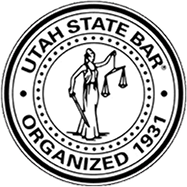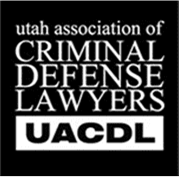After an arrest or criminal charge in Utah, small missteps—like missing a hearing, talking to police without counsel, or violating pretrial conditions—can severely damage your defense. Understanding Utah’s criminal procedure, evidence rules, and collateral consequences can help you avoid turning a difficult situation into an impossible one.
This blog explains the most common mistakes people make after being charged with a crime in Utah and provides clear, factual context so you can make informed decisions.
Understanding Utah Criminal Charges
Utah criminal cases are handled in District Courts (felonies and serious misdemeanors) or Justice Courts (infractions and lower-level misdemeanors). From the very first appearance, deadlines and conditions move quickly. The Utah Rules of Criminal Procedure and Title 77 of the Utah Code govern everything from initial hearings to sentencing.
The stakes are high: a criminal conviction can affect employment, housing, immigration, and even constitutional rights. That’s why avoiding the most common mistakes after being charged is crucial.
Mistake 1: Talking to Police Without Counsel
Utah defendants are protected under the Fifth Amendment and Miranda v. Arizona. Once you are in custody, officers must advise you of your rights before questioning. Anything you say—whether to “clear things up” or deny guilt—can be admitted as evidence.
Judges in Utah reiterate this at the first appearance: you are not required to make a statement, and anything you do say may be used against you. Remaining silent until you have proper legal representation protects you from unintended admissions.
Mistake 2: Missing Early Hearings
Many people mistakenly think arraignments or initial appearances are “just paperwork.” In Utah, they are much more:
- Initial appearance: The court ensures you know the charges and advises you of your rights.
- Arraignment: You enter a plea and the case is scheduled for pretrial proceedings.
Failing to attend leads to a bench warrant, potential arrest, and stricter conditions if you are re-released. Utah law is clear: ignoring court orders, even in misdemeanor cases, is a serious error.
Mistake 3: Violating Pretrial Status Orders
Utah law replaced traditional cash bail with individualized pretrial status orders. Judges can impose conditions such as:
- No-contact orders
- Supervised check-ins
- Curfews or GPS monitoring
- Travel restrictions
Breaking any of these terms, even unintentionally, can result in detention until trial. Utah Code § 77-20-205 allows for detention or stricter release terms if conditions are violated.
Mistake 4: Contacting Victims or Witnesses
Trying to “smooth things over” with a victim or witness is a major error. Contact can violate no-contact orders and may lead to new charges like witness tampering (Utah Code § 76-8-508). This includes indirect contact through social media, texts, or mutual acquaintances.
Domestic violence and assault cases almost always include strict no-contact provisions. Violating them often results in immediate arrest and additional charges.
Mistake 5: Altering or Deleting Evidence
Deleting texts, scrubbing social media, or destroying documents can be charged as tampering with evidence under Utah Code § 76-8-510.5. Prosecutors can subpoena electronic records, and deleted material often resurfaces through forensic tools.
Worse, the attempt to hide or destroy information may be more damaging than the evidence itself, since it shows consciousness of guilt.
Mistake 6: Posting About Your Case Online
Anything you say on social media can be used against you. Utah courts follow the Utah Rules of Evidence 801(d)(2), which allow a defendant’s own statements to be admitted as non-hearsay when offered by the prosecution.
Even private or “deleted” posts can be authenticated and used in court. In short: social media silence is the safest option after being charged.
Mistake 7: Pleading Without Understanding Consequences
In Utah, a guilty plea doesn’t just mean sentencing—it can trigger collateral consequences. These include:
- Immigration issues for non-citizens (Padilla v. Kentucky)
- Loss of professional licenses
- Firearm restrictions
- Housing and employment difficulties
The Utah Sentencing Commission publishes a Collateral Consequences Guide outlining how convictions impact everyday life. Entering a plea without understanding these consequences can cause lasting harm.
Mistake 8: Ignoring Administrative Deadlines (DUI Cases)
For DUI charges, Utah has a separate Driver License Division (DLD) process. You must request a hearing within 10 days of arrest to contest a license suspension. Missing this deadline means automatic suspension, even if your criminal case is still pending.
This is a critical mistake because the DLD process is separate from the criminal courts—handling one does not protect you in the other.
Mistake 9: Assuming Discovery “Just Happens”
Utah Rule of Criminal Procedure 16 requires prosecutors to disclose discovery—such as police reports, witness lists, and recordings—within five days of the initial appearance. But many defendants fail to track what has and hasn’t been disclosed.
Not paying attention to discovery timelines can mean missed opportunities to challenge evidence or file motions before deadlines.
Mistake 10: Mismanaging a Plea in Abeyance
A plea in abeyance allows a defendant to plead guilty but pause conviction while completing conditions like counseling, restitution, or probation. If you comply, the charges can be reduced or dismissed.
However, if you fail to substantially comply, the court can immediately enter conviction and sentence. Utah Code §§ 77-2a-1 and 77-2a-4 govern this program. Many people mistakenly assume a plea in abeyance is automatic leniency, when in reality, it requires strict compliance.
Mistake 11: Skipping Court Because “It’s Only a Misdemeanor”
Even minor charges require appearance. Failure to appear results in a bench warrant, additional charges, and possible suspension of release. Utah courts treat missed hearings seriously regardless of case severity.
Mistake 12: Overlooking Basic Defendant Rights
Utah Code § 77-1-6 guarantees defendants rights such as:
- The right to counsel
- The right to confront witnesses
- The right to compulsory process for witnesses
- The right to a speedy trial
Failing to assert or understand these rights can result in waived opportunities for defense.
Mistake 13: Discussing the Case on Jail Calls or Visits
In Utah, all jail calls, visits, and tablet messages are recorded and monitored by law enforcement. Anything said can be reviewed and used as evidence sometimes even against people on the outside. Only conversations with an attorney are confidential and protected.
If you’re speaking with a loved one in custody, never discuss the case. Stick to personal or neutral topics like family, work, or daily life. Talking about evidence, witnesses, or what to tell the lawyer can seriously harm the defense.
Utah Criminal Process at a Glance
- Initial Appearance/Arraignment: Advisement of rights, plea entry, and pretrial status order.
- Preliminary Hearing: In felony cases, the prosecution must show probable cause.
- Pretrial Conferences and Motions: Discovery disputes, evidentiary issues, and plea negotiations.
- Trial: Bench or jury trials depending on the charge.
- Sentencing: Guided by Utah statutes and sentencing guidelines.
Each step carries deadlines and consequences, making attention to detail critical.
How to Avoid These Mistakes
While you cannot control every outcome, you can avoid compounding the situation:
- Track deadlines carefully—especially in DUI and felony cases.
- Follow pretrial conditions strictly.
- Stay off social media regarding your case.
- Take plea offers seriously and understand long-term impacts.
- Attend every court date.
Why Legal Representation Matters
Navigating Utah’s criminal system without guidance is risky. Defense attorneys understand both statutory law and local practices—such as how different judges approach pretrial conditions or plea in abeyance agreements.
Edward D. Flint Attorneys at Law handles a wide range of criminal defense cases in Utah and is committed to protecting clients’ rights throughout the process.
Conclusion
Facing criminal charges in Utah is overwhelming, but many of the worst outcomes stem from avoidable mistakes—missing hearings, talking too much, or overlooking pretrial conditions. By understanding Utah’s criminal procedure and exercising caution, you can prevent errors that may compromise your defense.
For guidance tailored to your situation, reach out to Edward D. Flint Attorneys at Law. You can also contact us directly at (385) 707-0702.
Your future depends on the choices you make now, avoid missteps and protect your rights.
Disclaimer: This article is for informational purposes only and does not constitute legal advice. For legal guidance tailored to your specific situation, consult a licensed attorney.




